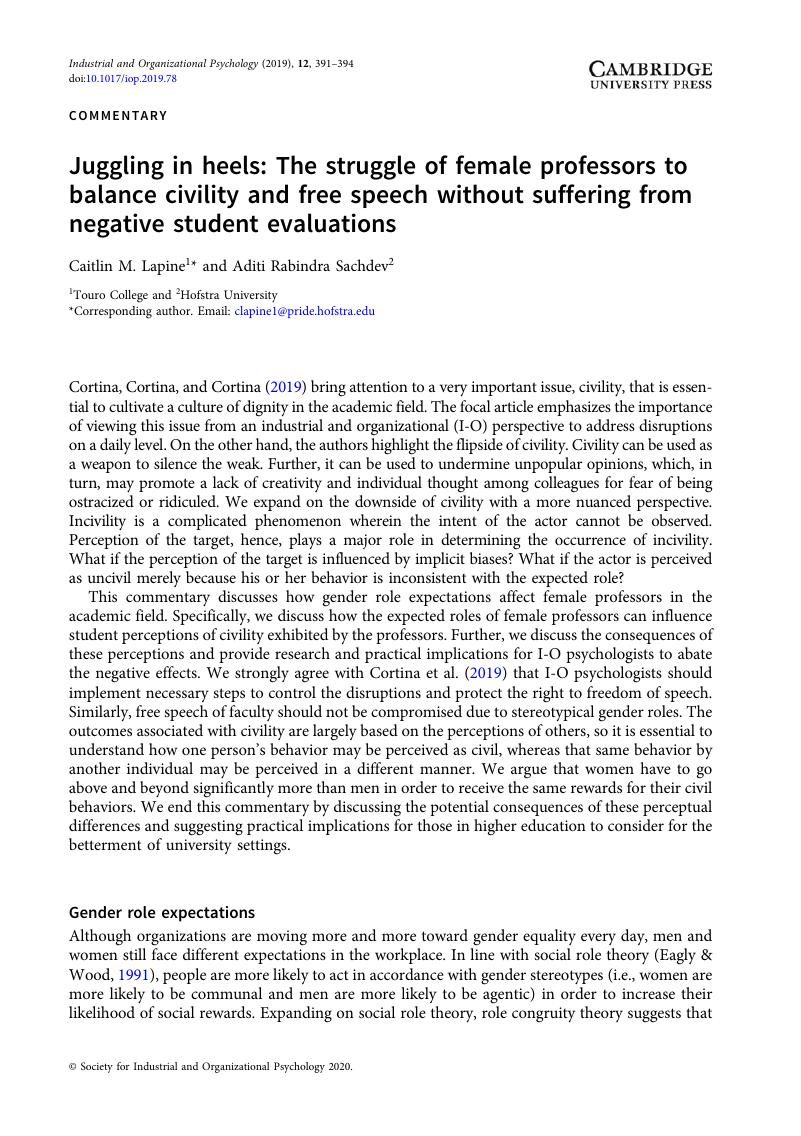Crossref Citations
This article has been cited by the following publications. This list is generated based on data provided by Crossref.
Worline, Monica C
and
Dutton, Jane E
2022.
The courage to teach with compassion: Enriching classroom designs and practices to foster responsiveness to suffering.
Management Learning,
Vol. 53,
Issue. 1,
p.
33.
Boswell, Stefanie S.
2024.
Academic entitlement and Ratemyprofessors.com evaluations bias student teaching evaluations: Implications for faculty evaluation and policy-lenient professors’ occupational health.
Heliyon,
Vol. 10,
Issue. 8,
p.
e29473.





